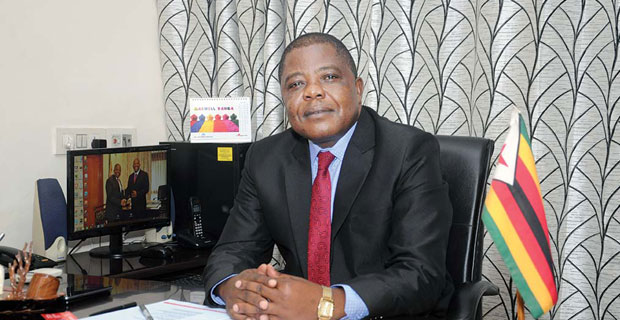“We want to attract more Indian companies to invest in Zimbabwe”
Zimbabwe, a picturesque, landlocked nation of about 14 million people in the southern part of Africa. Zimbabwe has 16 official languages with English, Shona and Ndebele being the most commonly used. The country’s trade ties with India can be traced back to the 14th century during the time of the Munhumutapa Kingdom. India supported Zimbabwe’s liberation struggle against British colonisation. Zimbabwe cricketing ties with India go back to over three decades, and it is not easy to forget the Tunbridge Wells Bridge match of World Cup 1983. H.E. Mr Maxwell Ranga, Ambassador of Zimbabwe to India speaks to India Empire Editor Sayantan Chakravarty...
What is the presence of Indian firms in Zimbabwe like at present?
The presence of Indian firms is small and those that are in Zimbabwe are in the pharmaceutical and agro-processing industries. Most visible of these companies are Surface Investments (oil processing) Medex Global of India (medicines), Outsiders Designers and Distributors (Garments), Zimbin Agro-equipment, Parrogate Holdings (textiles), Apollo Tyres, Grafax Cotton and Varun Beverages.
What is the extent of exchanges taking place in the field of culture and scholarships?
Cultural interaction has been one sided over the years, with only India sending cultural groups to Zimbabwe on a yearly basis. We are glad Zimbabwe has been taking steps to rectify that. We have taken concrete steps to revive the Cultural Co-operation Agreement that was signed in 1981 between Zimbabwe and India. Zimbabwe sent a cultural troupe to the 31st edition of the Surajkund International Crafts Mela that was held on 1 – 15 February 2017 in Faridabad. In the area of scholarships, Zimbabwe continues to benefit from Indian development assistance in the fields of education and training through the provision of scholarships by the Indian Centre for Cultural Relations (ICCR) and the Technical Economic Co-operation (ITEC). The Harare Institute of Technology has an agreement were it sends its junior lecturers to Indian Universities for staff development and over 100 lectures have been trained under this arrangement. Under ITEC, the number of students grew from a mere 3 students in 1986 to over 3000 students that have been trained up to date.
Is Zimbabwe considering being a participant in any of the Mission Mode projects of the Government of India, starting with Make in India, Digital India, Clean Ganga, Clean India, Smart Cities?
No. Zimbabwe is a developing country with limited financial resources.
What are the main areas where Indian firms are engaged in Zimbabwe, and what is your view on the results that have emerged from this engagement?
That question has already been answered. The relationship with the Indian companies in Zimbabwe has been mutually beneficial. However, we wish to see an increase of big Indian companies investing on a large scale in capital intensive development projects.











Comments.